News & Media
Groundbreaking Unisa conference examines how to connect minds and bridge gaps
Unisa hosted the 2nd International Conference on Higher Education Teaching, Learning and Student Support at its main campus in Pretoria from 5 to 8 May 2025, under the theme Connecting Minds and Bridging Gaps.
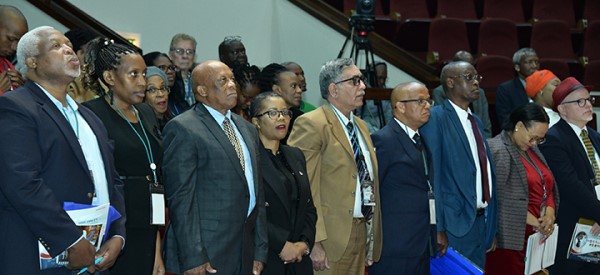
Delegates at the 2nd International Conference on Higher Education Teaching, Learning and Student Support
Welcoming delegates on the first day of the conference, Prof Eunice Seekoe, Acting Vice-Principal of Teaching, Learning, Community Engagement and Student Support at Unisa, said that 291 local and international guests would be participating in this year’s conference, and that 197 abstracts were accepted for oral and poster presentations.
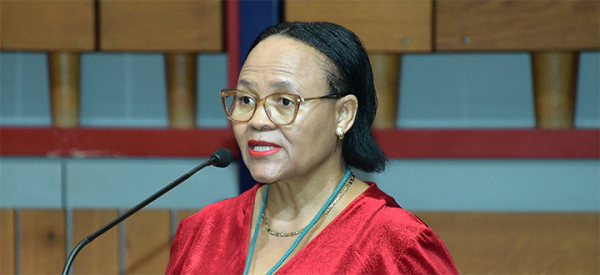
Prof Eunice Seekoe, Acting Vice-Principal of Teaching, Learning, Community Engagement and Student Support
She continued: "Distinguished guests, colleagues and students, we are gathered here today because of a shared passion for advancing knowledge, fostering student success and extending the transformative power of education to all corners of society. This conference provides a vital platform to engage in critical dialogue, share innovative practices and collectively chart a course towards a more transformative and impactful future for higher education."
A pivotal moment
Speaking next, Prof Puleng LenkaBula, Unisa Principal and Vice-Chancellor (VC), placed the conference and its theme in context. "This conference," she said, "could not have been more pivotal in our collective journey to re-imagining a contextually relevant higher education landscape in the context of changing geopolitical dynamics that remind us to ask questions. What is the value of university education in this changing context? Is education relevant in the context of war, crime, violence, and the denigration or humiliation of others? Is education relevant in a context where our consumption patterns are not attentive to the climatic changes and ecological degradation that we contend with? What is the value of an institution such as Unisa in this context?"
Breaking silos
In response to these topical questions, the VC postulated that the role of universities must at all times be to act as the conscience of society, to use science not only for innovation but to advance change that creates meaning, and to partner with society to find answers to the questions that society raises.
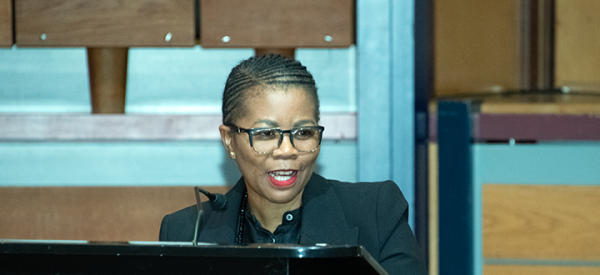
Unisa Principal and Vice-Chancellor, Prof Puleng LenkaBula
The VC then proceeded to comment on the theme of the conference. "It reminds us that higher education cannot be an isolated privilege for a few students," she said. "It must be a platform of transformation. To connect minds is to break silos. It is about opening spaces for dialogue. To bridge gaps is to develop responsive systems allowing all students to flourish regardless of their background or circumstances."
"Let us truly take this international higher learning conference as an invitation for us to collectively change our society for the better," the VC said in conclusion. "The University of South Africa reaffirms its unwavering dedication to this mission. As Africa's largest open, distance and e-learning institution, we do not take lightly our responsibility to lead, to serve, and to innovate in ways that uplift not just our individual students, but their entire communities."
Quality versus quantity - early learning as a game-changer
Dr Barney Mthembu, Deputy Director-General for Curriculum, Policy, Support and Monitoring at the Department of Basic Education, delivered the keynote address on behalf of the Honourable Siviwe Gwarube, Minister of Basic Education.
Mthembu said that the conference represents a vital space for collective thinking on how to advance inclusive, quality and future-ready education systems in the country and across the continent.
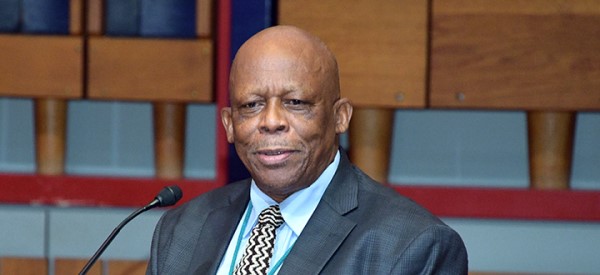
Dr Barney Mthembu, Deputy Director-General for Curriculum, Policy, Support and Monitoring at the Department of Basic Education
On access to education since the democratic dispensation, Mthembu said South Africa has made undeniable progress in expanding access to basic education, "and today we can confidently say that over 98% of children of school-going age are enrolled in various schools."
Continuing, he said that access is merely the starting point of the provision of education. "Our real measure of success," he stressed, "must be the quality of education we produce and the learning outcomes that we deliver. Here, we are facing challenging circumstances which necessitate a robust collaboration between basic and higher education."
Mthembu stated that international assessment bodies have confirmed the continued underperformance of South African learners in mathematics, science and literacy. He added: "While we are progressing well in terms of access, we still have a long way to go. This is not just an educational challenge, but a social and economic one, and therefore calls for urgent and sustained collaboration between sectors, institutions, and levels of governance."
"As the Department of Basic Education," said Mthembu, "we look at early learning as a game-changer. Research from UNESCO, the World Bank, and the African Union all converge on one point – that early learning is the foundation of future success. It is in these early years that the cognitive, social and emotional architecture of a child is formed, setting the trajectory of lifelong learning."
Reorienting strategy
Mthembu said that in response to this research, the Department of Basic Education is reorienting its strategy with a laser focus on foundational literacy and numeracy, and professional development of early childhood practitioners and foundation phase educators. "We believe this will shift the trajectory of learner performance across the system, in ensuring that quality education and better attainment of learning outcomes," he emphasised.
Concluding, Mthembu said that this early intervention cannot be achieved by the Department of Basic Education alone, adding: "The support and innovation form the higher education sectors, especially teacher education faculties, and distance learning institutions such as Unisa, are absolutely vital in ensuring that quality become the focal point over quantity."
Bridging the gap between basic and higher education
Speaking in response to Mthembu, Prof Robert Balfour, Rector and Vice-Chancellor of the University of the Western Cape, said that bridging the gaps between higher education and basic education are a preeminent concern, adding: "The gaps in our environment are many and they concern not only access and routes between higher education and basic education, but also access routes to our technical and vocational education and training environment; the gaps include artificial intelligence, multilingualism and funding."
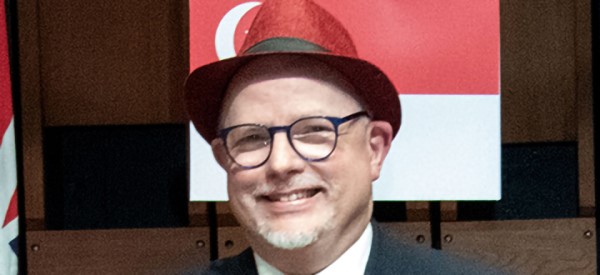
Prof Robert Balfour, Rector and Vice-Chancellor of the University of the Western Cape
Continuing, Balfour said that in the higher education sector, transformation remains an imperative to drive an agenda that is coherent, long-term and sustainable in addressing the many gaps in the education sector.
Balfour said that globally, curriculum transformation is not only driven by pedagogical imperatives for change, but also by demands for epistemic justice and the inclusion of indigenous knowledge in the Global South, "particularly in South Africa," he added.
"In the South African context," said Balfour, "that ongoing movement to decolonise the curriculum testifies to a concern in undoing the colonial legacies of undereducation and underdevelopment for particular ends. While it is a long-term project, it energises us as a way of validating plural epistemologies and changing power relations."
Concluding, Balfour stated that meaningful transformation "demands that we consider not only who is teaching, but how they are teaching. When we talk about humanising pedagogy, we must ask if the pedagogies of how we are teaching are enabling self-direction, and collaborative and cooperative learning among students."
Collaboration with the Virtual University of Pakistan
Another highlight at the conference was the signing of a letter of intent by Unisa and the Virtual University of Pakistan (VUP). The VUP is Pakistan’s first university based completely on modern information and communication technologies. It was established with a clear mission to provide extremely affordable, world-class education to aspiring students all over the country. Prof Dr Muhammad Mohsin Javed attended the conference and signed the letter on behalf of the Rector of VUP, alongside Prof Puleng LenkaBula, Unisa Principal and Vice-Chancellor.
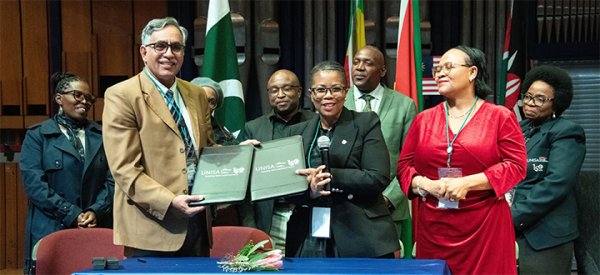
Unisa collaborates with the Virtual University of Pakistan
The following areas of collaboration were agreed to by the two universities:
- Advancement and benchmarking on academic quality assurance of regional support models, technologically enhanced academic trends, integrity in online classes and assessments
- Promotion of academic integrity as part of ethical conduct
- Considering disabilities as a factor in learning
- Sharing best practices and models for curbing the dropout rate
- Sharing best practices and models to promote student retention
- Advancing collaboration in the key areas of work-integrated learning, recognition of prior learning, multilingualism, academic literacies, and other co-curricular activities
A global platform for revolutionising higher education
Over the course of the four-day conference, the packed programme featured keynote addresses on a wide range of topical subjects and the presentation of 197 abstracts by experts in their respective fields.
Participating were, among others, Dr Whitfield Green, Chief Executive Officer of the Council on Higher Education; Prof Elifas Tozo Bisanda, Vice-Chancellor of the Open University of Tanzania; Anne-Marie Fannon, Director of the Work-Learn Institute at the University of Waterloo; and Prof Chika Sehoole, Former Dean of the Faculty of Education at the University of Pretoria.
The highly successful conference brought together educators, researchers, policymakers, students and practitioners from around the globe who explored and shared solutions in revolutionising higher education. Now in its second year, it continued to serve as a global platform for sharing knowledge, best practices and cutting-edge research to enhance the quality and inclusivity of learning, teaching, student support and research in higher education.
This year, the conference especially excelled in enabling delegates to engage in valuable discussions, exchange ideas, and establish collaborations for future research, curriculum development and other aspects pertaining to the scholarship of teaching and learning.
* By Godfrey Madibane, Acting Journalist, and Philip van der Merwe, Editor, Department of Institutional Advancement
Publish date: 2025-05-09 00:00:00.0


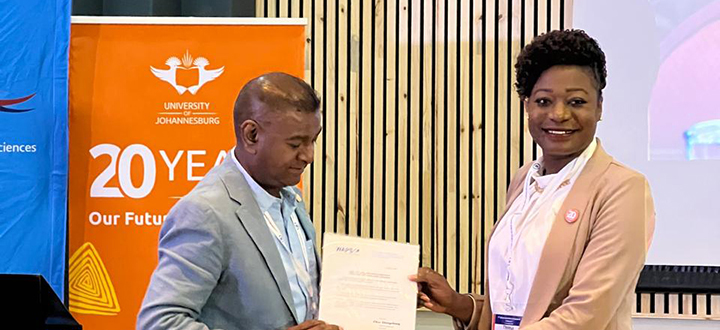 Unisa co-hosts major operations management conference
Unisa co-hosts major operations management conference
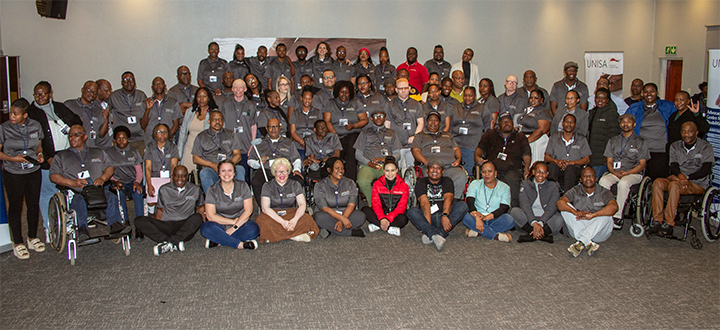 Strengthening disability-inclusive practices across higher education
Strengthening disability-inclusive practices across higher education
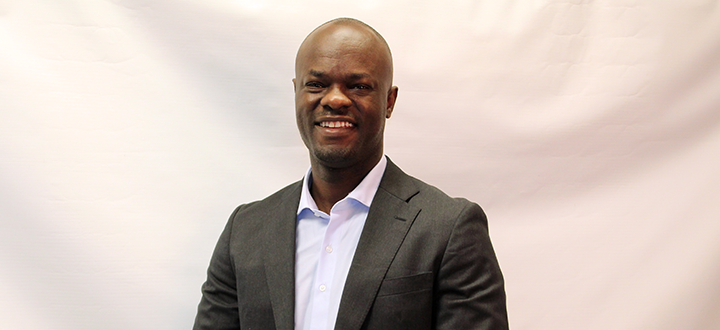 Unisa astrophysicist receives prestigious Royal Society award
Unisa astrophysicist receives prestigious Royal Society award
 Unisa's eminent women academics recognised for science excellence
Unisa's eminent women academics recognised for science excellence
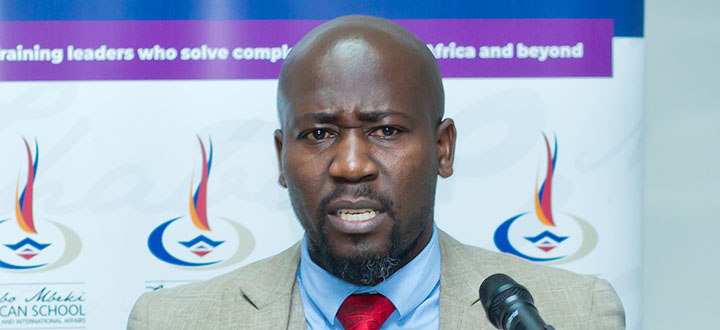 Illicit trade in Africa’s natural resources: Experts sound the alarm at Unisa seminar
Illicit trade in Africa’s natural resources: Experts sound the alarm at Unisa seminar